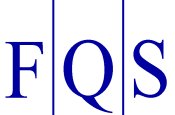To provide course members an appreciation of ISO 22000 and the steps needed to develop, implement and maintain a food safety management system to meet its requirements.

Managers and food safety personnel with the responsibility for implementing and maintaining ISO 22000 food safety management systems
Purpose
To provide course members an appreciation of ISO 22000 and the steps needed to develop, implement and maintain a food safety management system to meet its requirements.
Content
The background and development of ISO 22000
The aims and requirements of ISO 22000
General requirements of the food safety management system
Documentation
Management responsibility
Resource management
Human resources
Infrastructure
Work environment
Planning and realization of safe products
FS 22000, PAS 220 and prerequisite programmes (PRPs)
Hazard analysis (including the preliminary steps)
Establishing the operational prerequisite programmes (OPRPs)
Establishing the HACCP plan
Traceability system
Control of nonconformity
Validation of control measures
Control of monitoring and measuring
Verification of the food safety management system
Continual improvement
The certification process
The benefits of ISO 22000
We are an independent consultancy and training organisation that specialises in providing quality assurance and food safety services to the food industry.
We were established in 1992 and work for a range of organisations, from small businesses to blue chip multi-nationals.
Our services cover three main areas:
Training
Auditing
Consultancy/Advisory Services
We are an accredited training centre for The Chartered Institute of Environmental Health (CIEH) and The Royal Society for Public Health (RSPH) and are therefore able to offer a range of nationally recognised Food Safety, HACCP and Training qualifications:
We are also listed by the the U.K. Institute of Food Science and Technology (IFST) as providers of consultancy services for food safety systems.
Our Senior Partner and principal trainer/consultant is Tony Pallett.
Tony is a Fellow of the Royal Society for Public health and a Member of the Institute of Food Science and Technology. He has over 30 years of experience in the food industry and, during this time, has built a solid reputation as a trainer and consultant in food quality and safety systems.
If you would like to see what our clients think about our services then please take a look at these recommendations.
Our operations are not limited to the UK and we are happy to work with organisations throughout the world.
© 2025 coursetakers.com All Rights Reserved. Terms and Conditions of use | Privacy Policy